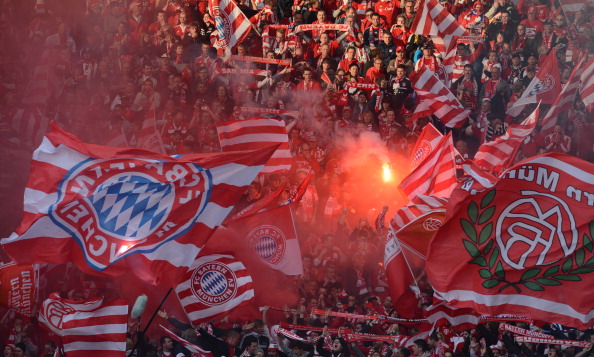Two European football giants, Bayern Munich (pictured below) and Chelsea (pictured bottom), will meet for the UEFA Champions League final this Saturday evening (May 19) in Munich. The match, pitting two of the biggest football nations, brings to the fore the power struggle we have seen between Germany’s Bundesliga and England’s Premier League, and between two economic powerhouses.
Back in 2009, we identified the Bundesliga as the main challenger to overtake the Premier League as the dominating force in European football. Our 2010 football sustainability study further demonstrated the strength of the Bundesliga model against the other major leagues. The recent record media deal signed with Sky is a clear confirmation of what we predicted at the time.
The Spanish Liga is currently battling with over €1 billion (£800.25 million/$1.3 billion) tax and national insurance debt without accounting for the late payment of salaries. Italian club losses continue, increasing to a staggering €285 million (£227.7 million/$365.03 million) for last season. Eight top English clubs are reported to be under investigation by tax probes. With an anaemic transfer market, French clubs have lost a large part of the windfall from transfers to other European leagues. Across the smaller leagues, such as Scotland and Switzerland, several once-famous teams, including Glasgow Rangers and Servette Geneva, are in or close to bankruptcy.

In the year that the Champions League final is brought to Germany, we are asking ourselves: how come the Bundesliga is getting things so right suddenly?
It is the only league – with its French counterpart to a lesser extent – that is able to control its costs through two main mechanisms: firstly the financial control that prevents clubs living above their means; secondly, the systematic development of youth academies that helps clubs recruit top-quality players at a lower cost than on the transfer market.

The Bundesliga also benefits from favourable conditions in terms of revenue generation. The €1.4 billion (£1.1 billion/$1.8 billion) investment in stadiums for the 2006 World Cup – which led to extra capacity, comfort and hospitality – was, to a large degree, publicly funded. This is in stark comparison to the 75 per cent of investment in the Stade de France, which does not have a resident club, for the 1998 World Cup in France. Lastly, the spread of the economic activity across Germany has allowed several clubs to sell many, very profitable, sponsorship and hospitality packages. France, Italy, and Spain, on the other hand, have a much more centralised business base.
However, until news of its association with Sky came to the fore, the Bundesliga was still behind Europe’s other four main leagues (in England, France, Italy and Spain) in terms of media revenue. With the new media deal announced recently, this gap has been significantly reduced. The financial domination of the Bundesliga is now confirmed.
History shows that domination on the pitch is likely to come next. Perhaps we will see this on May 19?
Emmanuel Hembert is principal of AT Kearney, a global management consultancy

